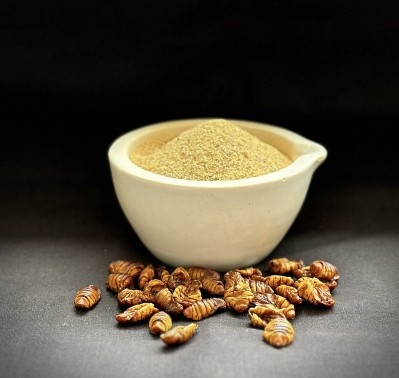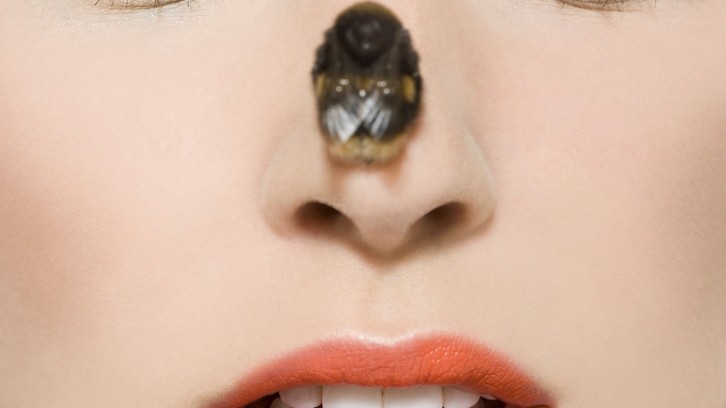Contents
- 1 CosmeticsDesign-Europe (CDE): Can you tell us more about Loopworm and how it could disrupt the cosmetics industry?
- 2 CDE: What are your future goals for Loopworm?
- 3 CDE: Why did you decide to start this business?
- 4 CDE: What kinds of challenges have you faced getting this far?
- 5 CDE: How do you expect your business to disrupt the beauty and personal care industry as a whole?
Loopworm has developed multiple insect-derived ingredients, which it hopes can be used by the cosmetics industry (Image: Getty) This startup is betting on it…
Snail slime, beetles, carmine beetles, bee venom, silkworm and more have all been used as ingredients in cosmetics formulations, yet in recent times, more consumers have demanded that their cosmetics be ethical in terms of the use of animal-derived ingredients, hence the growing use of the ‘vegan’ label on beauty and personal care products.
However, the industry also faces sustainability issues when it comes to sourcing ingredients, and in many countries, including India, insects are considered a pest in terms of growing food sources. This is why Loopworm, a startup based in India, is eager to champion the benefits of insect-derived ingredients as an option for the future of cosmetics formulations.
Loopworm has developed multiple ingredients, which it hopes can be used by the cosmetics industry.
The company said that insects are rich in novel proteins and peptides, lipids and biomolecules, which can be leveraged by the beauty industry in their formulations. Its products are made with an insect-derived oil, small peptides and amino acid mixtures, silk sericin, and chitin derivatives.
The business also said that these ingredients are all sustainable and derived using green processes. It highlighted that the Asian beauty industry already utilises silkworm and silk-based products and there is existing research that proves its efficacy.
We spoke to co-founder and CEO at Loopworm Ankit Alok Bagaria, to find out more
CosmeticsDesign-Europe (CDE): Can you tell us more about Loopworm and how it could disrupt the cosmetics industry?
Ankit Alok Bagaria (AAB): Loopworm produces insect protein and fat-derived products for animal nutrition, plant bio-stimulants and potentially cosmetics. We are currently targeting aquaculture and pet food manufacturers to supply our ingredients. However, we are looking to tie up with cosmetics formulators and ingredients research labs to test our purified oil and enzymatically hydrolysed insect protein products (bioactive peptides and amino acids) to better understand the efficacy and safety of these products.

An amino acids peptides mixture
CDE: What are your future goals for Loopworm?
AAB: We have developed an optimised process to make cosmetics ingredients and we wish to get these products contract manufactured in India. We are currently filing patents to protect our extraction technology. At the same time, we are looking to tie up with R&D labs and cosmetics experts to understand the use cases and application of our products.
CDE: Why did you decide to start this business?
AAB: We found immense potential in the use of insects as a bioresource. The insects can be processed using optimised bio manufacturing processes to extract the products or ingredients of need in multiple industries like animal nutrition, plant nutrition, cosmetics, nutraceuticals, biopharma, etc.
We started Loopworm immediately after graduating from IIT Roorkee in 2019. We came across multiple reports and research papers validating the use of insect-derived products in the different industries.
CDE: What kinds of challenges have you faced getting this far?
AAB: Insects are normally considered a pest in India, since India is a heavily crop agriculture-focussed country. Hence, to get people to wrap their heads around the concept of Insect Agriculture was in itself difficult. However, India is amongst the leaders in silkworm farming and honey bee farming. Also, we have a large pool of researchers and scientists who have been working on insect production at lab scale, pest management, development of insecticides and pheromones, artificial food for insects, etc.
Thus, getting the right team in the beginning was a bit difficult but post our equity investment in September 2022, it got easier. Another challenge that we faced was a typical challenge in life sciences-based activities. It’s difficult to control and exactly predict the behaviour of insects in a bulk production system, and hence it is difficult to develop precise processes to cultivate and process them.
CDE: How do you expect your business to disrupt the beauty and personal care industry as a whole?
AAB: The entire cosmetics industry is driven by high quality functional ingredients offered at the right price. Insects are a novel sustainable bioresource which are heavily underutilised. The cosmetics industry is already progressive in its use of animal-based products like snail mucin, fish & beef collagen, animal-derived lipids and even recombinant proteins. Thus, we can disrupt this industry by offering unique functional and biological properties derived from cultivated insects.

